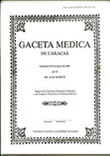Alargamiento de braquimetatarsia congénita en un tiempo quirúrgico con interposición de aloinjerto y fijación con placa
Contenido principal del artículo
Resumen
Introducción: Braquimetatarsia es el acortamientocongénito de los metatarsianos. La corrección puederealizarse en forma progresiva con osteogénesis pordistracción y fijador externo o en un solo tiempomediante la interposición de injerto óseo. El propósitode este trabajo es demostrar los resultados clínicoradiológicosdel tratamiento de la braquimetatarsiacon alargamiento en un solo tiempo.Métodos: Evaluamos en forma retrospectiva lospacientes con braquimetatarsia, intervenidosquirúrgicamente entre los años 2006 y 2015 enquienes se realizó una osteotomía transversa delmetatarsiano afectado, alargamiento, interposiciónde aloinjerto de cresta iliaca y fijación con placa.Se evaluó satisfacción y función del paciente, fusiónde osteotomías y corrección de parábola metatarsal.Resultados: Se evaluó 22 pacientes, 16 mujeres(73&%) y 6 hombres (27 %), edad promedio de 25años (17-36 años). En 6 (27 %) pacientes se alargó3er y 4to metatarsiano (uno bilateral). La longituddel aloinjerto fué entre 10 y 22 mm. (Promedio 14mm). 5 (22 %) pacientes ameritaron alargamientode 4to y acortamiento de 2do y 3er metatarsiano.2 (9 %) habían sido tratados previamente conprocedimiento similar en otro centro y se les realizórevisión por pseudoartrosis. Todos consolidaron susosteotomías. Una paciente ameritó reintervención al5to mes postoperatorio, por fractura en unión distaldel aloinjerto y el metatarsiano. Todos los pacientesmenos 2 (9 %), manifestaron su satisfacción.Conclusión: El alargamiento de braquimetatarsiacongénita mediante interposición de aloinjerto yfijación con placa, es una excelente opción terapéutica,con resultados satisfactorios para el paciente, rápidarecuperación, baja morbilidad y baja incidencia decomplicaciones.
Palabras clave: Braquimetatarsia. Aloinjerto. Placa.
SUMMARY
Introduction: Brachymetatarsia is the congenitalmetatarsal shortening. Metatarsal lengthening canbe performed progressevely with external fixator or asa one-stage procedure, with bone graft interposition.The purpose of this study is to present the clinical andradiological outcomes of the one-stage metatarsallengthening with allograft interposition and platefixation.Methods: We performed a retrospective evaluationof patients with brachymetatarsia, treated with onestagelengthening by allograft interposition and platefixation, between 2006 and 2015. We evaluatedpatient satisfaction and function, osteotomy fusionand metatarsal parabola correction.Results: We evaluated 22 patients (23 feet), 16 women(73 %) and 6 men (27 %), mean age 25 years (17-36 years). 6 patients had 3rd and 4th metatarsalslengthening (one of them bilateral). The allograftlength was between 10 and 22 mm (mean 14). 5 (22%) patients needed 4th metatarsal lengthening and2nd and 3rd metatarsals shortening. 2 patients (9%) had previous treatment with a similar procedureat a different center, needed revision surgery becauseof non union and graft resorption. All osteotomieshealed completely; one patient at 5 months postophad a fracture in the distal union between the allograftand metatarsal bone and needed revision and bonegrafting. All the patients but 2 (9 %) , manifestedtheir satisfaction with the procedure.Conclusion: The congenital brachymetatarsialengthening in one stage procedure with allograftand plate fixation, is an excellent therapeutic option,with good results for the patients, fast healing, lowmorbidity and low complication rate.
Key words: Brachymetatarsia. Allograft. Plate
